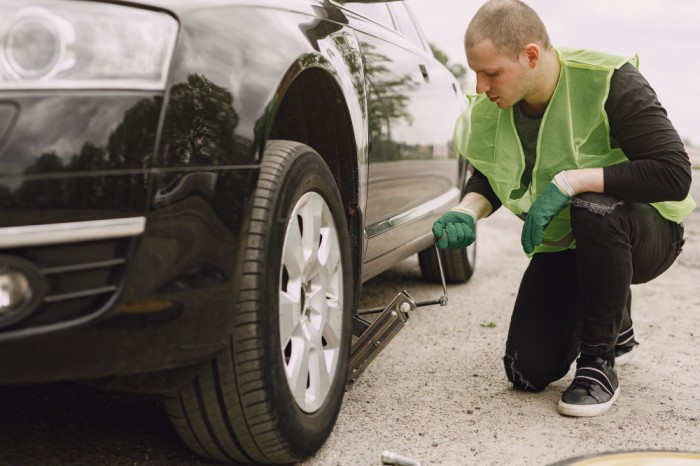
Maintaining your car is not just about keeping it shiny and new; it ensures safety, reliability, and longevity. Regular maintenance can help prevent costly repairs and maintain your car’s value. Here is your essential auto repair checklist for every car owner, from the daily commuter to the weekend road tripper.
Regular Oil and Filter Changes
Oil is the lifeblood of your car’s engine. It serves as a lubricant, cooling agent, and cleaner. Over time, oil breaks down and can contaminate dirt and debris. Most mechanics recommend changing your oil every 3,000 to 5,000 miles, depending on your car’s make and model and the type of oil used. Always change the oil filter with the oil since it traps contaminants and prevents them from circulating back into the engine.
Checking and Replacing the Air Filter
A clean air filter improves your car’s efficiency and performance. It allows your engine to breathe better, enhancing gas mileage and reducing emissions. You should check your air filter every 12,000 miles and replace it if necessary.
Tire Maintenance
Tires are critical for safety, comfort, and fuel efficiency. Check your tire pressure monthly, including the spare, as proper tire inflation can improve gas mileage by up to 3%. Inspect tires for tread wear and any visible damage to avoid blowouts and flat tires. To ensure even wear, most tires should be rotated every 5,000 to 10,000 miles.
Fluid Levels Check
Several fluids are crucial for your car’s performance and should be checked regularly:
Coolant: Keeps the engine from overheating.
Power steering fluid: Makes steering smoother and less strenuous.
Brake fluid: Essential for braking system performance.
Transmission fluid: Vital for shifting gears in automatic transmissions.
Windshield washer fluid: This is for visibility during adverse weather conditions.
It’s best to check these fluids monthly and top them up as needed.
Brake Inspection
Brakes are undoubtedly one of the most critical safety features in vehicles. Have your brakes checked at least once a year, more often, if you notice any problems like a spongy brake pedal or squeaking noises? This check should include the brake pads, rotors, and fluid.
Battery Check and Care
Car batteries typically last three to five years. Battery issues are often evident through slower engine cranks or having to press the gas pedal to start. Check the battery and its connections for corrosion and clean them as necessary. Your battery should be tested annually if it is over three years old.
Checking Belts and Hoses
Belts and hoses are integral to your car’s cooling, air conditioning, and charging systems. Check these for cracks, leaks, and wear regularly. The timing belt, a critical engine part, usually must be replaced every 60,000 to 100,000 miles. Failure to replace the timing belt can lead to severe engine damage.
Lights and Electrical Components
Check all lighting - headlights, taillights, brake lights, and turn signals - to ensure they work correctly. This not only helps prevent accidents but is also a legal requirement. Electrical issues can sometimes be subtle, so pay attention to unusual behaviors like dimming lights or issues with the dashboard display.
Windshield and Wipers
A clear view is essential for safe driving. Cracked or chipped windshields can become more significant problems over time. Wiper blades should ideally be replaced every six to twelve months, depending on usage and wear. Always ensure your windshield washer reservoir is full, and consider using a washer fluid with antifreeze properties during colder months.
Regular Professional Inspections
While many of these checks can be performed at home, a professional mechanic can spot potential issues you might miss. Having a full professional inspection at least once a year is advisable. This inspection should cover the vehicle’s major systems and components and can help catch issues before they become severe problems.
Maintaining a regular service schedule for your car can seem daunting. Still, it’s essential for its performance and your safety. Keeping up with this checklist will ensure that your vehicle remains reliable, safe, and ready to go when you are. Remember, preventative maintenance is always more cost-effective than emergency repairs. Ensure you trust a reputable mechanic and keep records of all your maintenance and repairs to maintain your car’s value and longevity.